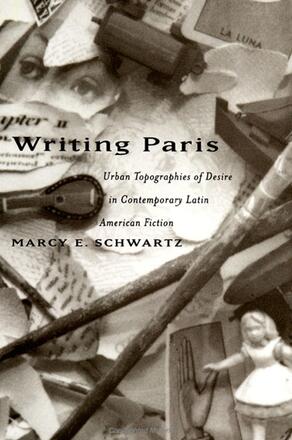
Writing Paris
Urban Topographies of Desire in Contemporary Latin American Fiction
Alternative formats available from:
Explores Paris as a desired and imagined place in Latin American postcolonial identity, uncovering the city's class, gender, political, and aesthetic resonances for Latin America
Description
Exploring Paris as a desired and imagined place in Latin American postcolonial identity, Marcy E. Schwartz examines fiction by Julio Cortázar, Manuel Scorza, Alfredo Bryce Echenique, and Luisa Futoransky as she uncovers the city's class, gender, political, and aesthetic resonances for Latin America.
Marcy E. Schwartz is Assistant Professor of Spanish at Rutgers University–New Brunswick.
Reviews
"As an illusory, novelistic city, Paris occupies an unrivaled position in Latin American thought and writing. Schwartz is concerned not with the Paris of geography, history, or demography, but with a Paris of the mind, inscribed in narrative and recreated in the imagination of readers. Her study draws on the work of cultural historians and critics to analyze this imaginary Paris, and her perspective offers a fascinating literary tour. Schwartz pays close attention to questions of language, the role of gender, the impact of exile, and the overall structure of 'desire' within the literary production of Latin American writers who construct Paris." — Rosemary G. Feal, University of Rochester
"A solid, thought-provoking contribution to the study of contemporary Latin American fiction, cultural studies, and the on-going debate on postcolonial critical theory." — César Ferreira, University of Oklahoma